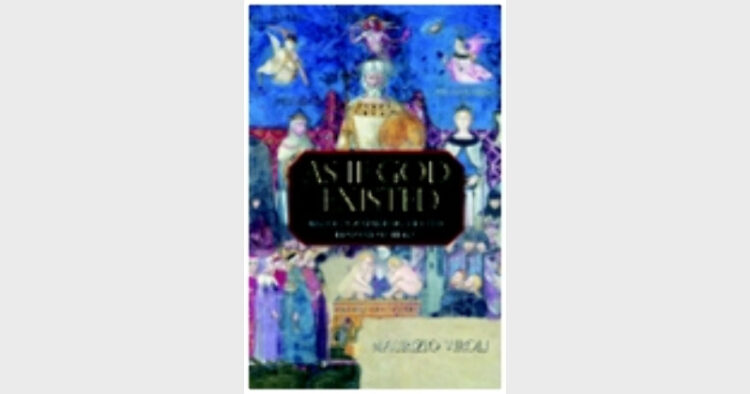Manju Gupta
As if God Existed: Religion and Liberty in the History of Italy, Maurizio Viroli, Princeton University Press, Pp 352, £ 27.95
THIS study focuses on three experiences of social and political emancipation in Italy – the free republics of the 13th to 16th centuries, the Risorgimento and the anti-fascist Resistenza. The early modern republics were consumed and destroyed by open or veiled forms of tyranny and the mid-16th century Italy fell under foreign domination. The liberal state created by the Risorgimento collapsed 60 years later under the yoke of the fascist regime and the Italian Republic that was born in 1946 as an anti-fascist struggle degenerated into Silvio Berlusconi’s court system. “Italy, to aptly describe its political identity, is a country marked by fragile liberty,” says the author.
Religious sentiments and language played a fundamental role. For instance, city-republics were sustained by a civic religion that combined classical and biblical themes. The Risorgimento was preceded and accompanied by a religious renaissance made possible by the rediscover and reinterpretation of Christianity as well as elaboration of various forms of “religion of duty” or “religion of humanity”, etc. The anti-fascist movement found inspiration in the “religion of liberty” framed by Bendetto Croce and other political writers.
The corruption and decline of political liberty was related to religious conceptions and practices. City-republics were first enervated by the degeneration of Christianity into a religion that opposed civic virtue and was then inundated by the religion of counter-reformation along with its teachings of society, submission. Fascism triumphed over the liberal state due to the neglect of the civil religion of the Risorgimento. Italian history shows that good religion produces political liberty whereas irreligiosity leads to tyranny and domination.
The book challenges the established view that Italian political thought of the Renaissance drew its language from classical Greek and Roman texts and very little from biblical and religious sources. The truth is that one of the most important sources of humanist political thought borrowed from biblical references and religious arguments to elucidate the nature of the republican government. Here the author refers to the early humanist political writers who contended that rulers must devoutly practice the political virtues of justice, fortitude, prudence and temperance as well as the theological virtues of faith, hope and charity. It was believed that the protection of God, Christ and patron saints was necessary to guard against sedition, discord, tyranny and war – the enemies of republican liberty.
From 1375 through 1456 to 1530 God was often invoked “as the city’s protector, the vindicator of the rights of free peoples against the ambitions of kings, emperors and popes.” The author says that the republican language from the 13th to the 16th centuries was probably less “biblical” than that of 16th to 18th centuries that was deeply religious, inspired by a particular type of religiosity which he describes as “civic Christianity”, from which it followed that God has created human beings in his own image and likeness. From this it was deduced that it was Christian duty to defend republican liberty to serve the common good.
This study also states that the Italian Risorgimento was religious thought, which took the form of Catholicism, Protestantism, New Christianism, “religion of humanity”, “religion of duty”, “religion of liberty”, etc., especially the last named in order to oppose totalitarian regimes or external invasions or widespread political corruption. The tragedy of fascism and Nazism should teach that totalitarianism “established itself through banal men” and the true antidote is a religion that “prevents one from adoring men who pretend to be gods, for it teaches us to love instead the inner God or moral conscience and to defend liberty with absolute devotion.”
(Princeton University Press, 41, William Street, Princeton, New Jersey, 08540; press.princeton.edu)














Comments